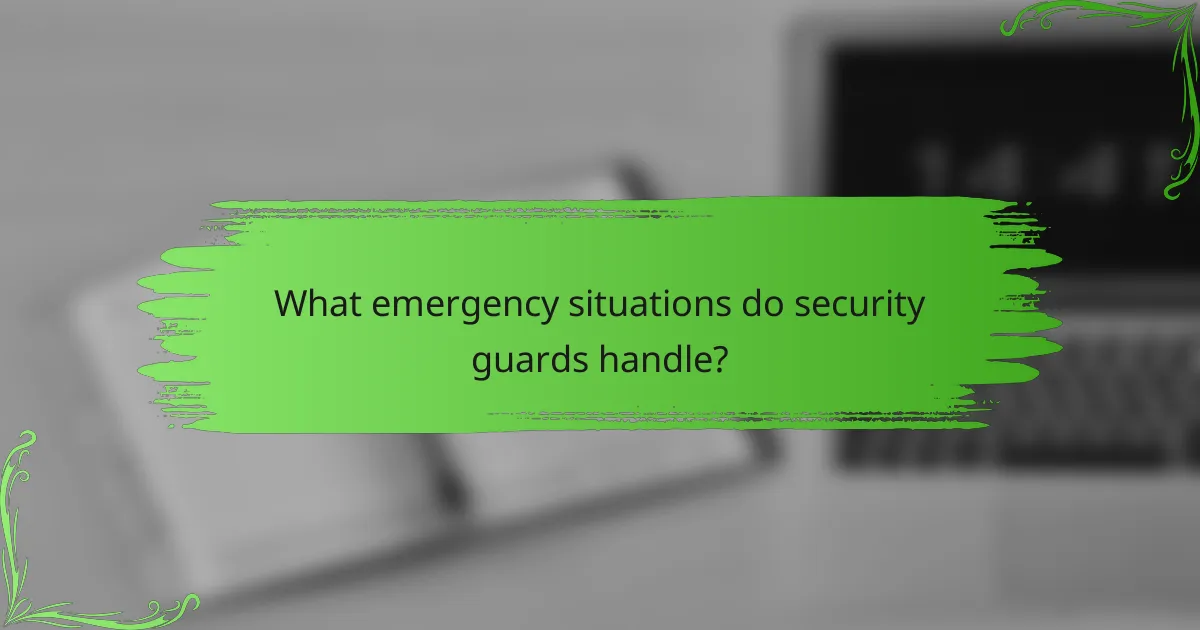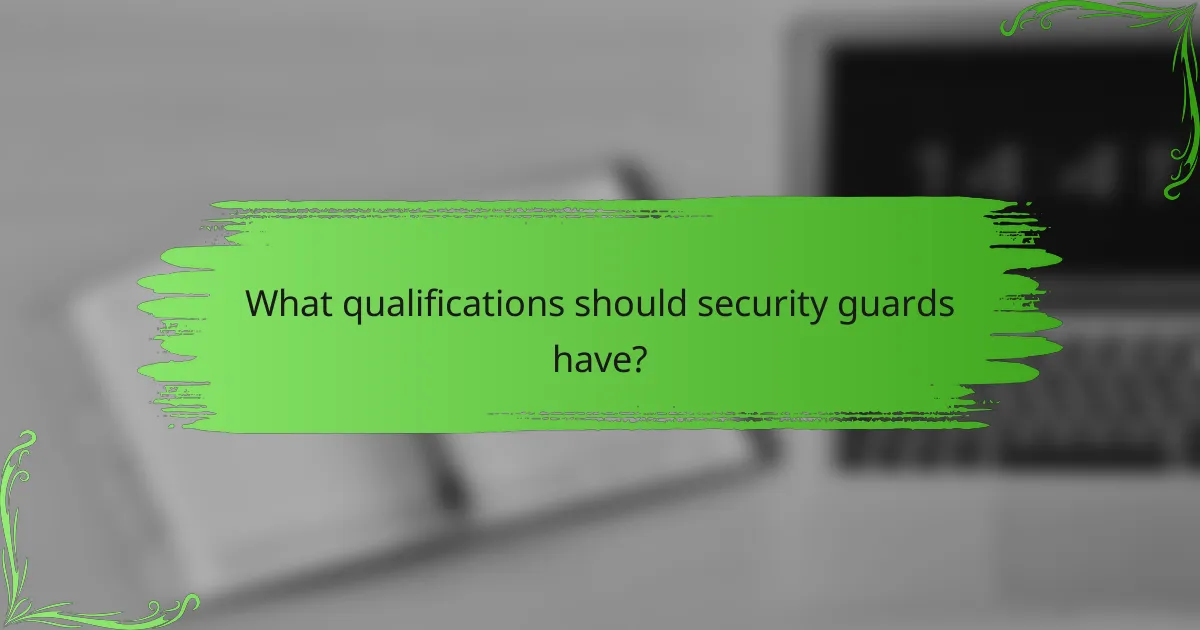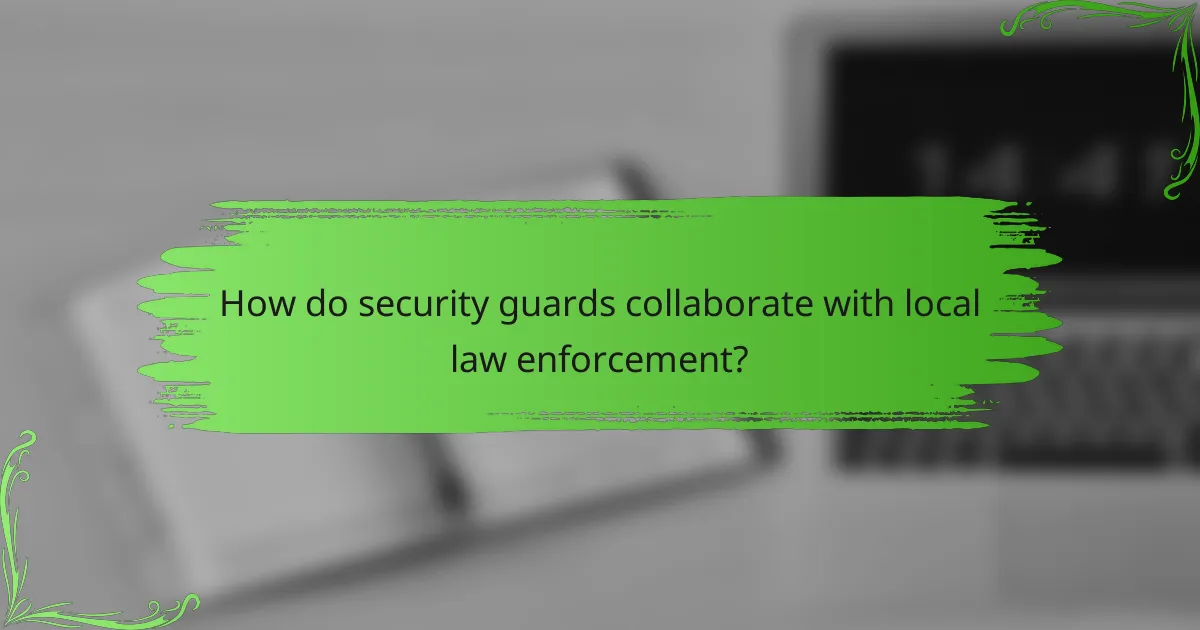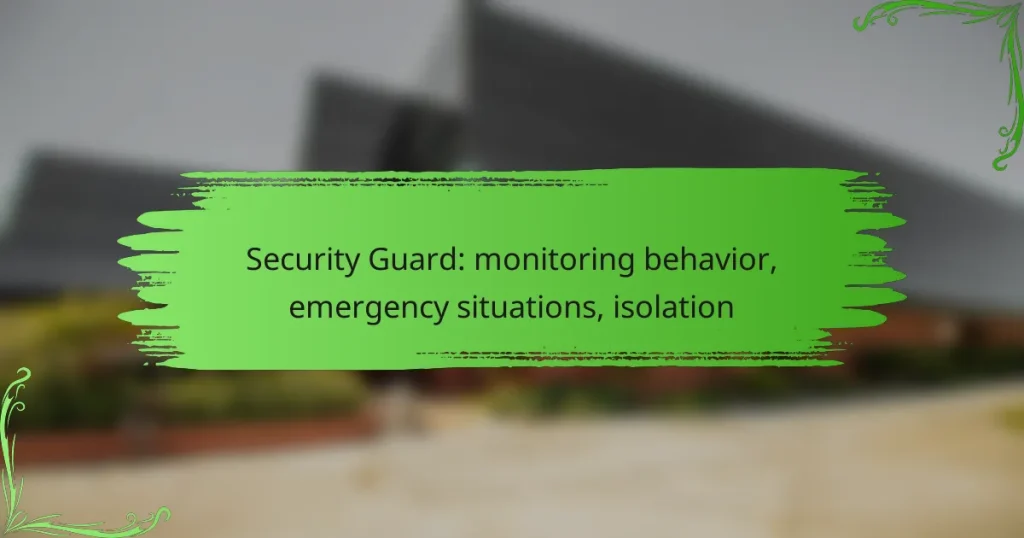Security guards play a crucial role in maintaining safety by monitoring behavior in public spaces and responding to emergencies. They utilize a blend of technology and keen observation to identify suspicious activities, while also being trained to handle various crisis situations effectively. By implementing isolation measures and controlling access to sensitive areas, security guards help prevent unauthorized entry and ensure a secure environment for all.

How do security guards monitor behavior in public spaces?
Security guards monitor behavior in public spaces through a combination of technology, observation, and communication. Their primary goal is to ensure safety and prevent incidents by being vigilant and proactive in identifying suspicious activities.
Use of surveillance cameras
Surveillance cameras are a critical tool for security guards, allowing for real-time monitoring of public areas. These cameras can deter criminal behavior and provide valuable evidence in case of incidents. Guards often review footage to identify patterns or suspicious activities that may require intervention.
When deploying cameras, it’s essential to consider factors such as placement, coverage, and privacy regulations. In many regions, signs indicating surveillance can also enhance deterrence while ensuring compliance with local laws.
Behavioral observation techniques
Security guards utilize various behavioral observation techniques to assess individuals’ actions and intentions. They are trained to recognize signs of distress, aggression, or unusual behavior that may indicate a potential threat. This includes monitoring body language, facial expressions, and interactions among individuals.
Effective observation requires a keen eye and the ability to remain discreet. Guards should practice situational awareness, which involves being attentive to the environment and the people within it, allowing for timely responses to any suspicious behavior.
Communication with law enforcement
Maintaining open lines of communication with law enforcement is vital for security guards. This collaboration ensures that guards can quickly report incidents or request assistance when necessary. Regular interactions with local police can also provide guards with insights into crime trends and safety concerns in the area.
Establishing a clear protocol for communication can streamline responses during emergencies. Guards should know the appropriate contact numbers and have a plan for escalating situations to law enforcement when required.
Incident reporting systems
Incident reporting systems are essential for documenting any unusual occurrences or emergencies. Security guards must be trained to accurately report incidents, including details such as time, location, and individuals involved. This documentation is crucial for investigations and can help improve security measures in the future.
Using digital reporting tools can enhance efficiency and ensure that reports are easily accessible for review. Guards should familiarize themselves with the reporting system in use and follow established protocols for timely submissions.
Training in conflict de-escalation
Training in conflict de-escalation equips security guards with the skills to manage potentially volatile situations without resorting to force. This training emphasizes communication techniques, active listening, and empathy to diffuse tension and resolve conflicts peacefully.
Guards should practice scenarios that may arise in public spaces, allowing them to develop strategies for handling various types of confrontations. Regular refresher courses can help maintain these skills and ensure guards are prepared for real-world applications.

What emergency situations do security guards handle?
Security guards are trained to manage a variety of emergency situations, ensuring safety and order. Their responsibilities include responding to medical emergencies, fire evacuations, active shooter scenarios, and natural disasters, each requiring specific protocols and quick decision-making.
Medical emergencies
In medical emergencies, security guards must quickly assess the situation and provide immediate assistance. This may involve calling for medical help, performing basic first aid, or guiding emergency responders to the scene. Familiarity with CPR and first aid techniques is crucial.
Guards should also be aware of common medical issues, such as heart attacks or allergic reactions, and know how to respond appropriately. Keeping a first aid kit accessible and regularly checking its contents can enhance preparedness.
Fire evacuations
During fire evacuations, security guards play a vital role in ensuring the safe and orderly evacuation of individuals from a building. They should be familiar with the building’s layout, including exits and assembly points, to direct people effectively.
Guards must also monitor for potential hazards, such as smoke or flames, and assist those who may need help evacuating. Regular fire drills can help guards practice their response and improve overall safety awareness among occupants.
Active shooter scenarios
In active shooter scenarios, security guards are trained to respond swiftly to protect lives. Their primary focus is to assess the situation, alert law enforcement, and guide individuals to safety while minimizing exposure to danger.
Guards should be familiar with the “Run, Hide, Fight” protocol, which emphasizes escaping if possible, finding a secure hiding place, or confronting the shooter as a last resort. Regular training and drills can prepare guards for these high-stress situations.
Natural disasters
Security guards must be prepared to handle natural disasters, such as earthquakes, floods, or severe storms. Their role includes ensuring the safety of individuals, providing information, and coordinating with emergency services as needed.
Guards should have a clear understanding of emergency plans specific to their location, including evacuation routes and communication protocols. Keeping emergency supplies on hand, such as flashlights and water, can also be beneficial during such events.

What isolation measures do security guards implement?
Security guards implement various isolation measures to ensure safety and control access in sensitive areas. These measures include securing perimeters, controlling access points, and monitoring restricted areas to prevent unauthorized entry and manage emergency situations effectively.
Securing perimeters
Securing perimeters involves establishing physical barriers and surveillance systems to deter unauthorized access. Common methods include fencing, gates, and security cameras that monitor the boundaries of a property.
Regular inspections of perimeter security features are crucial. Guards should check for vulnerabilities such as damaged fences or malfunctioning cameras, addressing these issues promptly to maintain effective isolation.
Controlling access points
Controlling access points is essential for managing who enters and exits a facility. Security guards typically use identification checks, visitor logs, and access control systems like key cards or biometric scanners to regulate entry.
It’s important for guards to be trained in recognizing valid identification and understanding the protocols for granting access. This minimizes the risk of unauthorized individuals entering restricted areas.
Monitoring restricted areas
Monitoring restricted areas involves continuous observation and surveillance to ensure that only authorized personnel are present. Guards often use CCTV systems and regular patrols to keep an eye on these sensitive locations.
Establishing clear protocols for monitoring can enhance security. For instance, guards should be trained to respond quickly to any suspicious behavior and to report incidents immediately to maintain a secure environment.

What qualifications should security guards have?
Security guards should possess a combination of certifications, training, and background checks to ensure they are equipped to handle various situations. These qualifications help maintain safety and security in the environments they monitor.
Certification requirements
Certification requirements for security guards vary by state or country, but most regions require completion of a training program. This program typically covers topics such as legal issues, emergency response, and conflict resolution. Some jurisdictions may also require a specific license to operate as a security guard.
In the United States, for example, many states mandate a minimum number of training hours, often ranging from 40 to 80 hours, before a guard can be certified. It’s essential to check local regulations to ensure compliance.
Background checks
Background checks are a critical part of the hiring process for security guards, as they help verify the candidate’s history and reliability. Employers often conduct criminal background checks, which may include checking for felonies, misdemeanors, and any history of violence or theft.
In many cases, a clean background is a prerequisite for employment, and some states require employers to perform these checks before issuing a security license. This helps ensure that individuals in security roles can be trusted to act responsibly.
First aid training
First aid training is an essential qualification for security guards, as it prepares them to respond effectively in medical emergencies. Many employers require guards to complete a certified first aid and CPR course, which typically covers basic life support techniques and emergency response protocols.
Having first aid training not only enhances a guard’s ability to assist in emergencies but also increases their value to employers. It’s advisable for security personnel to renew their certification regularly, as guidelines and techniques can evolve over time.

How do security guards collaborate with local law enforcement?
Security guards collaborate with local law enforcement by establishing clear communication channels and protocols. This partnership enhances safety and ensures a coordinated response during emergencies or incidents.
Regular communication protocols
Regular communication between security guards and law enforcement is crucial for effective collaboration. This can include scheduled meetings, phone calls, or radio communication to discuss ongoing concerns and share information about incidents.
Security teams should establish a clear chain of command and reporting structure. For example, guards might report suspicious activities directly to a designated law enforcement officer, ensuring a swift response to potential threats.
Utilizing technology, such as incident reporting apps or shared databases, can streamline communication. This allows for real-time updates and ensures that both security personnel and law enforcement have access to the same information, improving overall situational awareness.


